The holidays can be a difficult time for people living with an eating disorder, especially holidays like Easter which revolve around food and indulgence. From the exchange of Easter eggs to socialising and celebrating over a meal, this long weekend can be a tricky time for those on their recovery journey. Additionally, their regular support services may not be available which can add to their feeling of stress and anxiety.
The digital mental health resources below provide information, online treatment, support, information, and peer support for people with an eating disorder or body image concerns, their family, friends, and carers. These services can be an additional resource to help manage symptoms and aid in recovery or help loved ones understand eating disorders and how they can support someone with an eating disorder. They include web-based programs, apps, moderated forums, online and telephone counselling, and information sites.
Better Health Channel
Mental illness – Eating disorders
https://www.betterhealth.vic.gov.au/conditionsandtreatments/mental-illness
Better Health Channel is an online resource providing health and medical information to communities and individuals to improve their health and wellbeing. Their website includes information on current and emerging health issues, developments in medical research, and more. Through their website individuals, families, carers, and health professionals can access information and download factsheets on a range of eating disorders including; anorexia nervosa, binge eating disorder, bulimia nervosa, supporting someone with an eating disorder, and eating disorders for adolescents. These factsheets provide information on causes, symptoms, diagnosis, treatment, and where to get help.
Butterfly Foundation
1800 33 4673
Butterfly Foundation is a free, accessible support service for anyone needing guidance with an eating disorder or body image concerns. Their services include counselling, referrals, support, psycho-education, and guidance via telephone, web chat, email, and online support groups. Through the Butterfly Foundation website individuals, families and carers can access information about different types of eating disorders, recovery, treatment, risks, and warning signs, who it affects, and more.
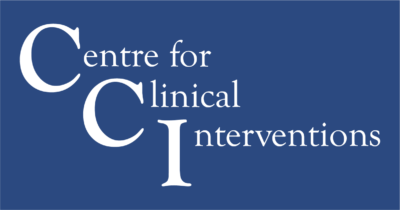
Centre for Clinical Interventions
Eating Disorders Program
https://www.cci.health.wa.gov.au/Treatment/Eating-Disorders-Program
The Centre for Clinical Interventions is a specialist public mental health service conducting clinically applied research, training for clinicians, and treatment for adults living with mood, anxiety, and eating disorders. Their online courses include a free, evidence-based treatment program for anorexia nervosa and bulimia nervosa, working to change the behaviours and thoughts for recovery. Centre for Clinical Interventions programs require referral from a GP or psychiatrist.
Disordered Eating
https://www.cci.health.wa.gov.au/Resources/Looking-After-Yourself/Disordered-Eating
In addition to their treatment programs, the Centre for Clinical Interventions provide a range of self-help resources for mental health problems, including disordered eating. Users can download workbooks on overcoming disordered eating, information sheets and worksheets on disordered eating that can be completed independently at your own pace.
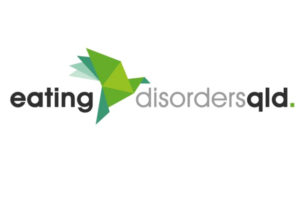
Eating Disorders Queensland
https://eatingdisordersqueensland.org.au/
Eating Disorders Queensland is an online community support and treatment service for individuals, their carers, and loved ones living with or recovering from eating disorders. They promote positive body image and prevention of eating disorders, providing information, recovery stories, videos and downloadable resources on eating disorders.
Eating Disorders Victoria
https://www.eatingdisorders.org.au/
1300 550 236
Eating Disorders Victoria is a website providing information for people in Victoria affected by eating disorders, connecting them with services, people and recovery resources. Their website includes information about eating disorders, warning signs, helping someone with an eating disorder and treatment. While designed to help Victorians affected by an eating disorder, the information available on their website can be accessed by anyone concerned about themselves or someone else.
Inside Out Institute for Eating Disorders
https://insideoutinstitute.org.au/#gsc.tab=0
The Inside Out Institute for Eating Disorders is an Australian research and clinical institute dedicated to improving the lives of people affected by eating disorders. Their website includes information and guidance for people experiencing an eating disorder, concerned about someone else, health professionals, and researchers to help with identification, assessment, treatment, and support.
National Eating Disorders Collaboration
The National Eating Disorders Collaboration is an initiative of the Australian Government aiming to improve the health outcomes of people living with or at risk of developing an eating disorder. Their website includes information, professional development, resources, and links to support services relating to eating disorders, treatment, and recovery.
Reach Out and Recover (ROAR)
https://reachoutandrecover.com.au/
Reach Out and Recover (ROAR) is an early intervention resource for eating disorders or body concerns. They aim to assist adults to identify problems with eating and body image issues, promoting appropriate help-seeking, and providing guidance on how to seek the right support. Combining health professionals’ expertise and research insights, ROAR includes interactive tools to help users understand more, get a better sense of the impact of these problems and where to seek help.
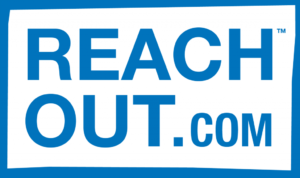
ReachOut
Eating disorders
https://au.reachout.com/mental-health-issues/eating-disorders
ReachOut is an online mental health service for young Australians and their parents to help young people be well and stay well. They provide mental health support and information or a range of mental health and wellbeing topics including self-help information, peer support, and referral tools. Their website provides information and support for eating disorders, including personal stories, support services, types of eating disorders, symptoms, treatment, and recovery.
SANE Australia
Eating disorders
SANE Australia is a national mental health service for people affected by complex mental health issues through support, research, and advocacy. They provide straightforward and concise information on treatment and self-help, moderated forums for peer-to-peer support for people living with mental illness issues, their family, friends, and carers. Their website includes a factsheet on eating disorders, providing facts, symptoms, types of eating disorders, and ways to help people with an eating disorder.
Kids Helpline
Teens – Eating disorders
https://kidshelpline.com.au/teens/issues/eating-disorders
Young Adults – Eating disorders
https://kidshelpline.com.au/young-adults/issues/eating-disorders
Kids – Eating disorders
https://kidshelpline.com.au/kids/issues/eating-disorders
1800 55 1800
Kids Helpline is a free, confidential counselling service for young people aged 5 to 25 years and their parents. They provide counselling via phone, email, and over the web as well as providing information and guidance on a range of issues relevant to young people. Their website provides information and support for teens, aged 13 to 17, and eating disorders, including types of eating disorders, how to identify an unhealthy relationship with food, recognising the signs and symptoms, and where to access help. The Kids Helpline website also includes information on how eating disorders affect young adults aged 18 to 25 and kids aged 5 to 12.

Headspace
Understanding disordered eating and eating disorders
https://headspace.org.au/explore-topics/for-young-people/eating-disorders/
Headspace is a national youth mental health foundation providing support and information to young Australians with mental health, physical health, alcohol, drugs, work and study concerns. Their website provides information on understanding disordered eating and eating disordered eating, including information about types of disordered eating, the signs and symptoms, related mental health problems, self-help tips for recovery and where to get help. They also provide a downloadable factsheet about disordered eating and eating disorders.
For Parents and Carers
While most of the resources above include a parent or carer component or are suitable for individuals coping with an eating disorder and their supporters, the resource below are designed to help people supporting someone else. These resources aim to help people care for someone with an eating disorder, or taking care of their own mental health while caring for someone else.
Eating Disorders Carer Help Kit
https://eatingdisorderscarerhelpkit.com.au/
The Eating Disorders Carer Help Kit was designed for carers providing information about eating disorders, treatment options, and how to support someone. They provide quick tips, videos, informative articles, podcasts, downloadable content and publication recommendations with the aim of improving carers access to information and resources, as well as improving understanding of the importance of carers in supporting adults with eating disorders.
Eating Disorders Families Australia
Eating Disorders Families Australia (EDFA) is an organisation dedicated to families and carers in Australia looking after young people with an eating disorder. Their website provides families and carers with access to resources and information about caring for a family member with an eating disorder and opportunities for peer support. Designed with parents and families in mind, the website provides support and education to empower families affected by an eating disorder throughout their journey to recovery.
Feed Your Instinct
https://feedyourinstinct.com.au/
Feed Your Instinct (FYI) is an online tool developed by the Victorian Centre for Excellence in Eating Disorders (CEED), providing information to assist in the recognition and understanding of eating disorders and/or body image problems. The program is designed for parents of children and young people experiencing eating and body image problems, highlighting common warning signs, useful information, guidance on how to help and options for further support. By guiding users through four modules on eating, wellbeing, thinking and feeling, they aim to help parents decided if they need to be concerned about their child, understand what is happening and what to do next.

The Shared Table
https://edqsharedtable.com.au/
The Shared Table is a carer training program developed by Eating Disorders Queensland providing free online supportive mental therapy training for carers or someone with an eating disorder. The program includes information about the stages of meal support, communication skills, setting rules, boundaries and non-negotiables, and the role of nutrition in recovery. The Shared Table is designed to be used in addition to traditional treatment.

Raising Children Network
Eating disorders in older children and teenagers
Raising Children Network is a free, reliable, up-to-date information resource, funded by the Australian Government, for Australian parents. Their website includes parenting videos, articles, apps, and information guides for busy families and parents on a range of topics, including eating disorders. They provide information about eating disorders in older children and teenagers aged 9 to 18 including what are eating disorders and disordered eating, symptoms, how to speak with children about disordered eating, getting help, support services, risk factors and why teenagers can be at risk of disordered eating.



